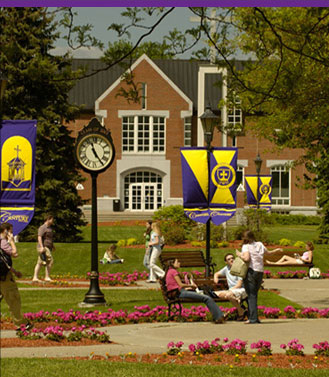Over the past week I’ve had many conversations with our faculty and staff. Common throughout many of those conversations were people articulating feelings of overwhelm, worry, anxiety, a sense of hopelessness and a general sense of malaise. Someone recently shared a comment made by her supervisor who said, “we are not all working from home, we are at home in a crisis, and having to continue to work.” We are working in a way we’ve never had to work before, having to be teachers and caregivers, isolated from friends and family, unable to enjoy activities we once relied on as sources of energy and joy. We are staring to refer to the days as blursday. It’s no wonder we’re experiencing these feelings.
As I was thinking about these conversations and surfing the internet for some insight, I came across an article in the Harvard Business Review (March 23, 2020) titled, “That discomfort you’re feeling is grief” and a lightbulb went off. Yes! Exactly…grief. We are grieving the life we had. We are grieving the loss of the future life we had imagined. We are grieving for those that are suffering and who have lost loved ones. We are grieving for our children who are not going to experience their graduations, sports season and time with their friends. We are grieving the loss of our financial security. We are grieving about how we will move forward in this new, unforeseen reality. We are grieving our loss of our sense of safety.
We are not alone in this grief and while for many of us the desire may be to retreat and withdraw within, the best way to move through grief is to reach out to others. Friends and family want to help, to provide a shoulder to lean on, to listen, but they won’t know what we need unless we tell them. Our faith based communities are another resource for those that have that in their lives. Finally, talking to a mental health professional may be the best course of action especially if our grief is complicated and/or we suspect we may be depressed.
Cigna and your college have many wonderful resources to support you and your family through this complicated time. I encourage you to reach out and to take advantage of these resources. Taking action is the only way that each and every one of us will be able to bring our best selves to life and work every day. Take care and stay well.
Employee Family Assistance Program: see listing in school specific resource guide under Career Well-being Resources
Cigna telehealth: Telephone and web based on demand care from medical and behavioral health professionals
Happify and iPrevail: These mental well-being apps are a new addition to the Cigna suite of benefits. Happify brings you effective tools and programs to help you take control of your feelings and thoughts. Complete a few activities on your smartphone, tablet or computer each week to start seeing meaningful improvement in your life satisfaction and your ability to fight back against negativity. iPrevail is a Cognitive Behavioral Therapy (CBT) based program tailored to your specific needs. Every program provides you interactive lessons, behavioral tools, tracks your progress and enables you to connect with a coach and with community support.


